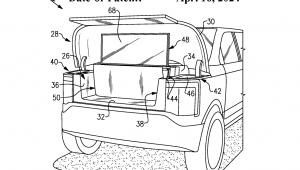Is it Dumb to Buy Smart Audio/Video Devices?

As the engineer correctly pointed out, the Apollo computer, despite being incredibly sophisticated for its day and costing a zillion dollars, is no match for today's cheap junk consumer electronics. This generally follows Moore's Law that predicted that computer processing power should double every two years. The law explains why new stuff blows away the old stuff. It also explains why your current stuff will be blown away as well. And therein lies a problem.
I certainly won't propose a Luddite argument that new-fangled things should be avoided. Today's audio/video gear is simply amazing. The sound and picture quality is outstanding, the access to content is staggering, and frankly the cost/value ratio is miraculously good. I've done a lot of AV prognosticating, but I never imagined a future as good as this. Bravo.
But here's the thing. In fact, here are several things. First, it seems like that the more sophisticated a device is, the faster it will be superseded by something better. Restating that, the more sophisticated a device, the sooner it will be obsolete. Consider the simple things in your everyday life – pencils, rulers, shoes, even relatively modern tech like bicycles — they are essentially timeless; your grandmother would have no trouble using them.
Now consider the sophisticated devices in your life — laptop, smartphone, car navigation — your child might not have a problem using them, but they might frustrate your grandmother; they are certainly not timeless. So we make this bargain with the devil. We gladly buy the latest tech, but we know that we'll only be using it for a short time. It's disposable.
Smart AV devices are taking planned obsolescence to a whole new level — one of programmed obsolescence.
And here's the another thing. We call these devices “smart.” And things like smartphones certainly deserve the accolade. But lots of other things, like smart speakers, are not smart. The speakers do not contain any intelligence at all; they only seem smart because they can access powerful devices via the internet. Things like smart speakers are as dumb as dumb terminals were back in the days of acoustic couplers and dial-up connections.And their reliance on that connection, the connection that is essential for them to operate, is their greatest weakness. As I noted last time, Sonos is abandoning support of some older speakers. Similarly, Microsoft, Google, and other companies routinely abandon support of their older software products. That is understandable; it costs a company actual money to continue to maintain gear that was purchased years ago. Nevertheless, once a company orphans a device, you are hosed. It's planned obsolescence taken to a whole new level — that is, to programmed obsolescence.
So what's a person to do? Well, you need to ask yourself, how important to me is this product's longevity? Any wireless connected device, particularly ones that connect to the internet via an app, are vulnerable. If you want greater permanence, consider wires instead of wireless. Standards, file formats, and protocols all come and go. Hardware connectors have a lifespan too, but at least with a wired connection, a few decades later, a signal still stands a chance of getting through. With a software stream or app, your chances dim with each passing year.
Does that mean you can only buy analog gear? A stack of stereo gear from the 80s probably works just fine. Unlike some orphaned speakers, those old KEFs still make sound and in fact sound great. Still, it's okay to buy digital stuff. But before you buy something, imagine how it would operate if its wireless or internet connections were broken; would the device still work offline? Similarly, when possible, choose a device that has at least one old-timey analog input and output; even after the app goes poof, a copper wire might keep it working for a long time.
I know, I know. Feel free to file this blog in the Get Off My Lawn folder. But still, in this era when even the basic right to repair a product is in jeopardy, a little consumer pushback on programmed obsolescence wouldn't be a bad thing. And get off my lawn.





























































